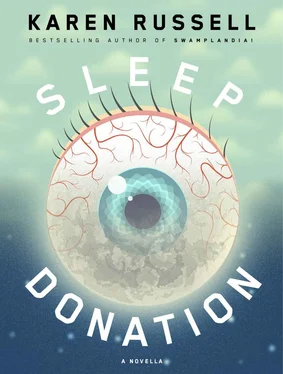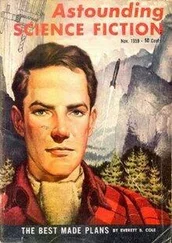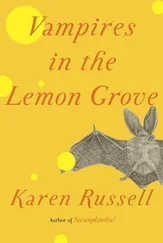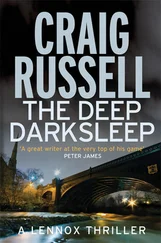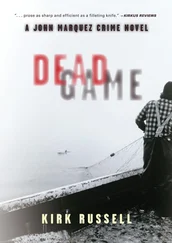She leans back on the cork soles of her slippers, her robe flapping open. I can see a swirl of mauve moles on her collarbone, her nursing bra biting into her pale left breast.
“This was my sister,” I tell her, extracting the photograph from my bag.
Unconsciously, half-consciously, I know we are both participating in the illusion that my sister is the one they will be helping; I brandish her photograph before Mrs. Harkonnen’s eyes, then my own, letting the spell set. Dori’s suffering I describe so freshly that anyone could be forgiven for forgetting that it’s over, forever.
“We need to live as one body, don’t we, Trish?” she asks me, her blue eyes widening inches from my face.
Mrs. Harkonnen and I have never talked religion, or gotten into her family background, but I suspect that something must have shattered her in a complementary way, to make her such a perfect match for my sister’s story. Maybe she, too, lost a sister. Maybe she belongs to a strict sect that advocates the gift of one’s every breath to strangers.
But all of my assumptions, Justine Harkonnen reverses. The physics of giving and receiving, as I understand them, seem not to apply here. Even to a Van filled with Slumber Corps evangelists, her faith in the rightness of sleep donation is alarming. She gives what we demand, with blue eyes scrubbed of any misgivings. We all find this upsetting, I know it, although there’s not much room to say so. Nurse Carmen speaks her name with a censuring wonder. Nurse Luisa, who has three little boys, won’t make eye contact with Mrs. Harkonnen any longer. A good mother, the nurses nervously agree, should be growing more upset with us, more worried for her baby’s health, angrier about our chronic requests —not less.
I stay with the Harkonnens in the Sleep Van. Milk darkens a quarter-inch circle around Mrs. Harkonnen’s left nipple, an involuntary seepage of which she seems wholly unaware; underneath the giraffe-print blanket, black sleep gushes out of her daughter.
There are natural laws that govern the flow of dream and substance from body to body, laws that determine the passage of electricity through tissue, the routes taken by ruby marrow and iodine crystals and colorless vibrations. Laws to order every visible and invisible migration.
And I feel certain there must be a second set of laws, inscrutable but real, that governs exactly how much a particular individual can give to and receive from another. Some hydrology of human generosity. Because there are these gifts we can make to one another freely, reflexively, with no sting of loss; and there are gifts we fight to relinquish, beg to get.
Mr. Harkonnen grabs me while the nurses adjust the baby’s silver helmet. Nurse Carmen, frowning, flicks at a gummed tube.
“You have pushed beyond the limits of what she can spare,” growls Mr. Harkonnen.
“We have not,” I say sadly.
I show him the chart:
PATIENT’S WEIGHT: Nineteen pounds
MAXIMUM IN ONE SLEEP DRAW: Six hours
MAXIMUM IN A 30−DAY PERIOD: Fifty-four hours
“Well, what did you take just now?”
“Six hours.”
His eyes search my face.
“You’re sure it’s safe for her to give that much?”
Oh, I have no idea. Safety is nothing we can guarantee to a donor; that’s why I collect the signatures.
“These days, the science is so advanced! Trust me: our sleep doctors know every vital detail pertaining to your daughter. They will take only what her body can afford to give, I absolutely promise you.”
Midway through the draw, there is some hiccup; a green light blinks on above the monitors and we all wince, even the nurses. Which is a frightening thing to witness, this neon beeping registering on the nurses’ napkin-smooth faces —something akin to watching stewardesses flinch at mid-flight turbulence. Then the regular rhythms resume, draining more sleep from her chest. The Sleep Van fills with the odd slick smell, and the proprietary gurgle of the machine.
In her womb, Baby A was formed inside a tidaling generosity. Glucose, oxygen, proteins, fats: all transferred from the mother’s bloodstream to the bloodstream of the baby.
Intermission: Faith Transfusion
You start to feel like it’s all Ponzi.
I have to go into the Storches’ private office in the trailer, to let the brothers administer to me:
I want to know, do they think I should do my pitch a different way?
Jim scowls up at me from his office chair with good-natured bemusement, as if he’s trying to locate the humor in a very bad joke. Rudy speaks in a tone like knuckles clenching:
“The Donor Y furor is negatively affecting your pitching. Is that the problem?”
Yes, I say. One of them.
There is micro-sleep; there is also micro-arousal. The brain’s partial awakening. At the cerebral disco, parts of the brain are always lighting up, going dark. I’m waking up, I tell the Storches. When I pitch, I am in two places at once —asleep, awake —merged with Dori, but also observing myself from above. There I am, far below, in a mall parking lot; I stagger backwards as if shot. But I can also see beyond my body now, to the faces of my recruits. I can hear the threat encoded in my pitch. People go sheet-white, their heads shaking to the Dori-rhythms. Children hide behind their parents’ legs, but they watch me, too, and they know that if their parents do not give sleep, if they “choose” not to donate, they, too, might die in this same juddering, blood-sputtering, irremediably conscious way.
“And the problem is, what, that you feel guilty?”
I nod.
“Don’t. Problem solved.”
“It’s this Donor Y bullshit. She’s scared, Rudy.”
“What would really be a nightmare for us? If you quit pitching, at a time when we need every minute we can get of REM-sleep.”
Jim is pacing now, so agitated he won’t look my way.
“If a take-down of our charity was something you planned, Donor Y?” says Jim, addressing the wavy blankness of a window. “Mission accomplished.”
Does Jim talk to Donor Y, too? Is he the imaginary target for all of Jim’s anger? This fills me with a great sorrowful surprise. We have a phantom in common. I wonder how he appears to Jim, if he is a bearded terrorist, if he is an insane person, if he is perfect evil. Whoever he turns out to be, his dream has spawned actual fatalities. Thirty-two “suicides” have been linked to the Donor Y nightmare. (“Suicides” is another term being hotly debated at this moment, since many of the Donor Y−infected appear to have scaled ladders and jumped from catwalks and rooftops in a somnambulatory fugue). He incubated all those deaths, not one life.
Then Rudy brightens, turning to me.
“Have you seen your zeros this month? With the Baby A aggregates? That will be cheering. Get those percentages for her, Jim —”
Worse, I’ve started to hear my doubts in Dori’s voice. She was always smarter than me, in school, outside of school. If she were here, I would ask her what to do now. She’s not a word-talker, not anymore, but her pressure inside my rib cage translates quite clearly: This is how you turn a gift into extortion.
“I think I have to try and find another way of pitching…”
“Baby,” cautions Jim, “you need to calm down, now.”
“And I don’t want to terrify…”
“Oh,” says Rudy. “Edgewater.”
Jim’s face unpetals, revealing some depth of emotion beneath his initial affectionate dismissal, his Storchy I’m-on-your-side smile. Rage, I think.
“Jesus, Trish,” Jim murmurs. “We’re already so fucked here.”
Behind Jim, the trailer windows are flatly sparkling. At this hour, they are black rectangles. It’s unnerving to look out, see nothing.
Читать дальше
